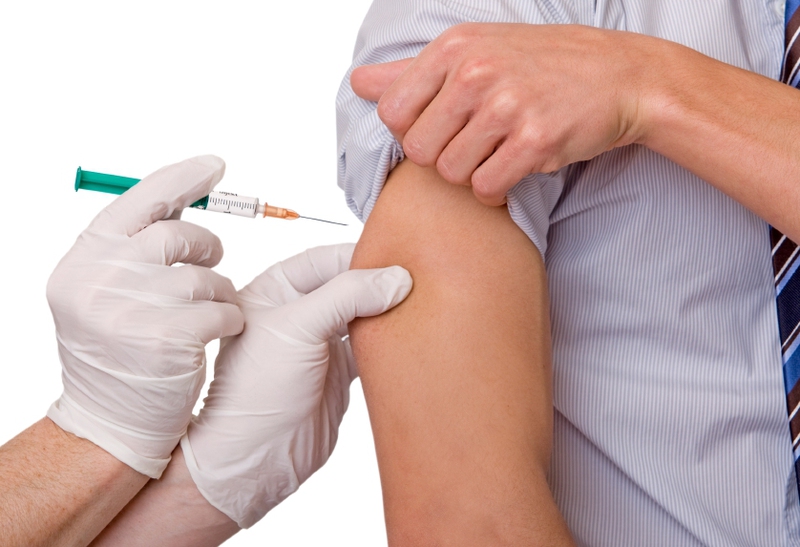Getting your child vaccinated is one of the most important things you can do to prevent disease. Not only do vaccines protect the child from disease, they also protect everyone else from the spread of highly infectious diseases. Some parents, by choice or circumstance, choose to delay the vaccination schedule of their child. This choice is not without consequence. The recommended vaccine schedule has been subjected to tons of research that gives specific timelines for vaccines based on the risk posed to the child by a particular disease.

What to Do After Delayed Vaccine Schedule
It is usually never too late to catch up on shots your child has missed. For example, if your child missed their first shot when they’re 2 months old, they can always start later. In cases where your child has gotten some shots and then fallen behind for some reason, they can always pick up from where they left off without starting over. If you have kids that have never been immunized or are way behind schedule, it is best to contact your doctor. They can offer advice on the best way forward regarding the immunization.
Using Combination Vaccines
One of the fastest ways to catch up or avoid disrupting the vaccine schedule is to use combination vaccines. Your doctor can recommend it since it allows the child to get several vaccines at a go without getting many injections. Some examples of combination vaccines include DTaP, MMR, DTaP/IPV/HepB and Hib/HepB.
One thing you should never do is postpone the immunization of your child just because you can always catch up on it. It’s hard to predict when your child might contract a fatal, but vaccine preventable disease. It would be unfortunate to lose your child this way. Have them fully protected at all times by avoiding delayed schedules.
Valid Reasons for Delayed Vaccine Schedule
Severe Reaction to Vaccine
If your child has had an adverse reaction to a vaccine before, it is advisable to avoid vaccinating them. Allergic reactions to vaccines are rare, but they do happen. Look out for the following symptoms – hives, headache, confusion, low blood pressure and difficulty breathing.
Some side effects are a normal occurrence after getting vaccinated. These include redness at the site of the shot and low fever. This should not be mistaken for an adverse effect. If you’re in doubt about your child’s symptoms, consult with your doctor. Depending on the circumstances, they might recommend a delayed vaccine schedule.
High Fever
In cases where your child has high fever of 101F and higher, you should seek the opinion of your doctor on whether vaccination should be delayed. The shot might not harm the child, but it can be risky giving them the shot while they still have fever since it will be impossible to determine whether they’re having an allergic reaction to the vaccine later. This could put your child in danger of having an adverse reaction to future shots. Make sure to reschedule any postponed vaccinations.
Lung Conditions or Asthma
If your child has asthma or any other lung condition, they should receive the flu shot every year. This is because the flu can wreak havoc by causing breathing difficulties. However, they should avoid the nasal version of the vaccine. It contains weakened viruses that are live. The shot, on the other hand, contains dead viruses.
High-Dose Steroids
If your child is on high-dose steroids as treatment for overactive immune reactions such as asthma, they should steer clear of live virus vaccines. These vaccines include rotavirus, nasal flu vaccines, MMR, chicken pox and shingles. The vaccines should be delayed until after a few weeks after the child has stopped taking the high-dose steroids. These drugs usually inhibit the activity of immune cells that help fight viral infections. If the child is on low-dose steroids, then there is no need for a delayed vaccine schedule.
Chemo or Immunodeficiency
If your child is receiving chemotherapy, their immune system is compromised. For this reason, live-virus vaccines should be avoided. The same can be said for kids receiving immunosuppressive treatment for diseases such as juvenile rheumatoid arthritis or inflammatory bowel disease.
In such cases, it is best to delay vaccination since killed-virus vaccines do not work well when immunity is suppressed.
HIV Positive
As a rule, children with HIV can only get vaccinated when their immunity is not severely compromised. In fact, they should steer clear of the live-flu vaccine. The only determinant for whether the child can receive all other vaccines is their T-Cells count. If they’re in an acceptable range, an HIV positive child can receive most live-virus vaccines including rotavirus, varicella and MMR.
Egg Allergy
Vaccines for measles and the flu are made in chicken eggs. Nonetheless, they are still safe for your child even if they are allergic to eggs. Research has shown that people don’t necessarily react to the flu vaccine just because they are allergic to eggs. Vaccinating a child who has an egg allergy should be done in gradually increasing doses. The vaccine should be administered by a pediatric allergist.
Someone Is Sick
Kids who live with adults with low immunity due to HIV/AIDS, chemotherapy, or taking immunosuppressive drugs shouldn’t be given some vaccines. This is because vaccines are made from weakened forms of the disease causing microbe. For example, if a child is given the nasal flu vaccine, they can easily pass on the virus to low immunity persons who live with them.
View All Comments /Add Comment